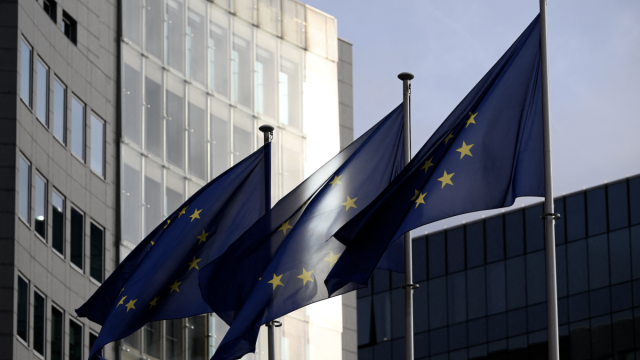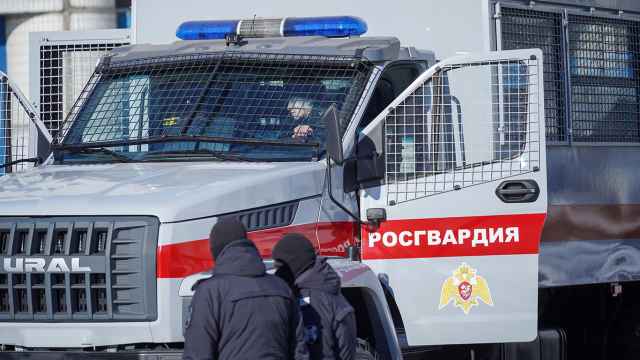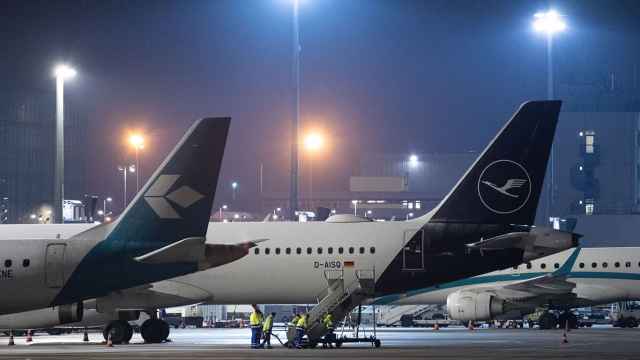BRUSSELS — The European Union said it had "very good" talks Saturday with Poland and Russia on adjusting a new gas supply contract between the countries to align it with the bloc's laws.
Poland reached a preliminary agreement with Russian gas export monopoly Gazprom in January. The contract was not signed, however, after the European Commission said it was assessing the compatibility of the deal with EU law, including issues related to the pipeline's management, access to third parties and tariffs.
The new deal will raise annual deliveries of gas to Poland to as much as 10.2 billion cubic meters from about 7.4 bcm. The increase will cover a supply gap after one of the country's transit sources halted last year and will help secure supply from the Yamal pipeline.
The EU said Friday that it saw a risk of shortages in the next three months as existing supply arrangements would probably only satisfy demand until mid-October. Those include annual purchases from Russia under the current contract, Poland's own production, imports from other sources and gas in storage.
"We are having some very good and in-depth discussions with both Russian partners and Polish authorities on the future arrangements for Yamal, and we haven't finished those discussions," Philip Lowe, director-general for energy at the commission, said in an interview in Moscow on Saturday.
Poland has been seeking to raise gas supplies since early last year, when trader RosUkrEnergo, 50 percent owned by Gazprom, halted deliveries following a dispute between Russia and Ukraine. Under a contract that ran out Dec. 31, RosUkrEnergo was supposed to deliver 2.3 bcm of gas to Poland in 2009.
The new deal extends the previous contract by 15 years to 2037. Gazprom will keep using Yamal, which runs across Poland to Germany, through 2045, according to the agreement.
"In the EU, we have new legislation that tries to put issues of capacity usage and investment in capacity into the hands of independent operators rather than into the hands of one supplier as such," Lowe said.
"Yamal is a very specific situation, however; it is Russian gas coming through a Russian-owned pipeline. We want to see the provisions that are applied in Poland be the same as would be applied to any other importer and operator. This requires some careful attention to the relationship between the system's operator, the owner and the regulator," he said.
The Polish Economy Ministry said in a statement that the parties "moved significantly closer" on the contract. The next round of talks between Poland and Russia, with the EU overseeing the legal side of any new deal, will take place in the coming week, it said.
The contract would help Poland, which gets about two-thirds of its gas from Russia, avoid supply reductions similar to those faced by its chemical and oil refining industries earlier this year when temperatures fell.
Polskie Gornictwo Naftowe i Gazownictwo, or PGNiG, Poland's dominant gas company, forecast in March that it might sell 14.3 bcm to 14.5 bcm in 2010. In the first half of this year, it sold 7.6 bcm.
Poland's own production of gas is 4.3 bcm and its storage capacity is about 1.6 bcm. The country can also import almost 1 bcm of gas from neighboring Germany.
"It is indeed a very delicate and complex issue" linked to the implementation of the EU energy market liberalization package, said Yelena Dirizhina, at Gazprom's department for foreign economic issues, during a conference call Sept. 2. "So we're seriously looking into the issues of how our interests could best be protected."
A Message from The Moscow Times:
Dear readers,
We are facing unprecedented challenges. Russia's Prosecutor General's Office has designated The Moscow Times as an "undesirable" organization, criminalizing our work and putting our staff at risk of prosecution. This follows our earlier unjust labeling as a "foreign agent."
These actions are direct attempts to silence independent journalism in Russia. The authorities claim our work "discredits the decisions of the Russian leadership." We see things differently: we strive to provide accurate, unbiased reporting on Russia.
We, the journalists of The Moscow Times, refuse to be silenced. But to continue our work, we need your help.
Your support, no matter how small, makes a world of difference. If you can, please support us monthly starting from just $2. It's quick to set up, and every contribution makes a significant impact.
By supporting The Moscow Times, you're defending open, independent journalism in the face of repression. Thank you for standing with us.
Remind me later.





